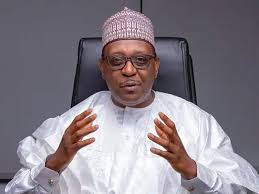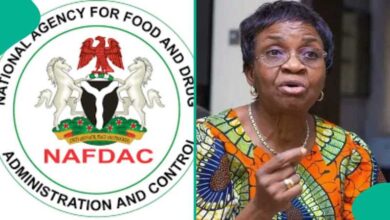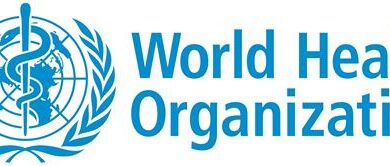FG Assures Nigerians Of Determination To Make Drugs Affordable

Prof Muhammad Ali Pate
The Director General, National Agency for Food and Drug Administration and Control NAFDAC, Prof. Mojisola Adeyeye has assured Nigerians that the current high cost of medicines in the country will become a thing of the past as the Agency in partnership with pharmaceutical industry working hard to bring down the cost of drugs.
Speaking in same vein the Coordinating Minister of Health and Social Welfare, Prof Muhammad Ali Pate also assured Nigerians that the various policy measures already put in place by the President Bola Tinubu administration would soon begin to reflect positively in the cost of essential medical commodities.
According to a statement yesterday by NAFDAC’ Resident Media Consultant, Sayo Akintola, the duo made the assertions at the webinar lecture organized by The Cable Newspaper to celebrate its tenth anniversary with the theme: “Addressing Costs of Medicines.”
Prof Adeyeye identified rejuvenation of the local pharmaceutical industry as a panacea for high cost of medicines in the country.
She said locally manufactured medicinal products would be more accessible and affordable compared to the imported drugs.
According to her, the devaluation of the Naira accounted largely for high cost of production locally as the high exchange rate made procurement of raw materials and equipment imported for production extremely high, adding that due to difficulty associated with procurement of dollar, cost of the imported drugs has also hit the roof.
About the same time, she said two multinationals left which caused the cost of drugs they produce to go up.
To encourage local pharmaceutical industry to grow, Prof Adeyeye reiterated that NAFDAC under her leadership started the “5 plus 5” regulatory scheme where a company that has been importing drugs that the local pharmaceutical industry is able to produce will get a last five-year renewal. During the five-year renewal period, the importer must migrate to local manufacturing or partner with local manufacturer.
This is an outcome of a study that was done in 2019 that revealed that the top 5 drugs that are imported are also the top 5 drugs that are manufactured in Nigeria.
“From that initiative, she disclosed that more than 30 per cent of new companies in Nigeria are results of “5 plus 5” because many importers started building their own companies or partnering with local manufacturers through contract manufacturing. That is access. That’s the way to make drug available, accessible,” she said.
The NAFDAC boss explained that the Agency also did another policy change called NAFDAC Ceiling 34 wherein drugs under those ceiling cannot be imported. According to her, the ceiling was increased from nine to 34 drugs when she assumed office so that those 34 drugs that are manufactured locally with good installed capacity would not be allowed into the country.
‘’Our manufacturers import everything except water’’, she said, adding that the raw materials – Active Pharmaceutical Ingredients (APIs) and the non-active called Excipients are all imported.
‘’I told the industry operators that we need to start making some APIs locally and that has resulted in EMZOR almost completing their facilities in Shagamu. They are going to be making four anti-malaria APIs – sulfadoxime, Pyrimethamine, Artemether and Lumefantrine. The Fidson consortium is also planning manufacturing some APIs. The DG said the initiative was aimed at reducing the cost of drugs eventually.
‘’But we cannot start manufacturing locally without strengthening the regulatory because we have never regulated local manufacturing of APIs.’’, she said. Therefore, in preparation for the manufacturing the intellectual capacity has to be strengthened; NAFDAC organized a workshop in October 2023 that attracted 150 participants – regulators, manufacturers, professors from the Universities and the future workforce -part four students.
Prof Adeyeye lamented that because of the high cost of medicines some unscrupulous people will start making substandard falsified medicines, warning that NAFDAC is not asleep. ‘’Our work is 24/7 in terms of regulation and control of SF medicines. We do unannounced inspections of local manufacturers. Since, February 16 and 17 this year we went after the Open Drugs marketers because some of the unscrupulous manufactures or importers use the open market as haven for substandard falsified medicines.
We will be using Traceability technology to monitor the supply chain. She added that NAFDAC is leading in Africa and second in the world using Track and Trace technology. GS1 Technology driven to make the supply chain visible.
She said NAFDAC’s efforts are all about local content which is also the thrust of President Tinubu administration. Embracing this will lead to increase in the nation’s GDP, our unemployment will decrease and Nigeria will be better off for it.
Minister of Health and Social Welfare, Prof Ali Pate, noted that the escalating costs of pharmaceuticals is part of the global phenomenon, expressing regrets that for past 20 years the nation have been doing catch up, stressing that the present administration is focused on solving the issue.
‘’We are working hard to do so through the Presidential Initiative to Unlock the Pharmaceutical Value Chain that the President announced in October 2023. But two pockets of issues underlying what we are observing now. Nigerians are hurting. There’s Forex devaluation which is on the supply side. The ability to buy materials, equipment, the infrastructure deficit. Some infrastructure for manufacturing that we have is not at the level that could meet up the demand that we have’’, he said.
The minister noted that financing of healthcare in Nigeria, the affordability has been a long-standing issue for more than 40 years, adding that less than 10 per cent of Nigerians have health Insurance or any issuance to speak of which means the cost of our financing healthcare is out of pocket, hence when prices go up the medically related reimbursement for medical care also goes up.
He said this has thrown many Nigerians into poverty because if you have ailments like cancer or kidney failure it’s easy if we have a viable insurance platform. Prof. Pate disclosed that the president has asked them to find solution as government in collaboration with the private sector, adding that both must work closely hand in hand.
He further disclosed that government has continued to engage with pharmaceutical consultative forum, ably led by Prince Adeluyi, stressing that ‘’we are just finalizing an instrument from government to address the fiscal policy constraints for the raw materials and manufacturing equipment. That’s an instrument that signals the government intervention that we will do in addition to advancing medical industrialization agenda.’’
He also said that massive effort is underway to reform the health insurance landscape, adding that ‘’we believe that if we can expand the national health insurance scheme and have millions of Nigerians covered the ability of the system to pay for those costs of medicines, diagnostics and Medicare will not be borne by individuals and households but by a third party.’’
He said that the absence of a third party is the reason people are feeling the pain of the rising cost of medicines, adding that the National Health Insurance Agency NHIA and NAFDAC have been developing a medical supply chain initiative which is trying to address that.
‘’All these point to the fact that we are not unmindful of the challenges many Nigerians are facing. Food prices, and other products that we don’t manufacture at home. It’s a transitionary crisis Nigeria is digging its way out of that I believe in a year or two, we will see things stabilize and inflation that has gone up will begin to stabilize and drop’’.
As we industrialize, the Minister said we begin to mitigate against dependency on import of critical lifesaving commodities to reduce the burden on Nigerians overtime.
‘’There are two ways. Easy way and the hard way. We have taken the easy way-import dependence. The hard way is the easier way in the long run. We are now choosing the harder way which is to industrialize. It’s tough and it must be done. The industry is with us. The government under the leadership of President Tinubu is committed to ensure that we go through this harder way because in the long run it is the easier way for all of us.’’




